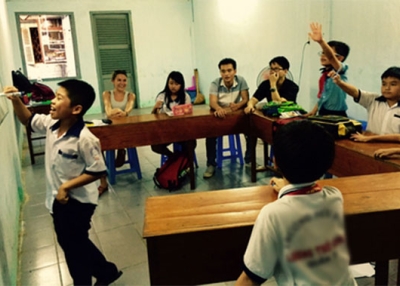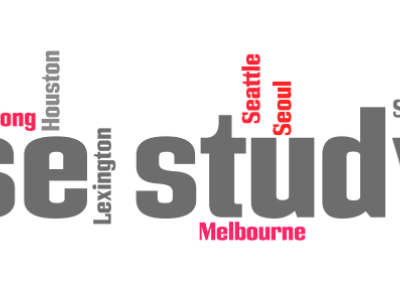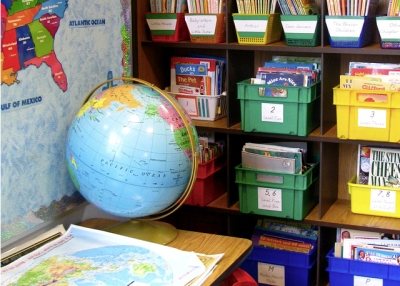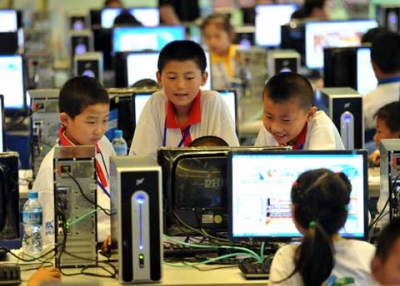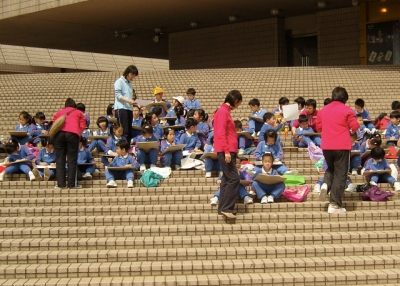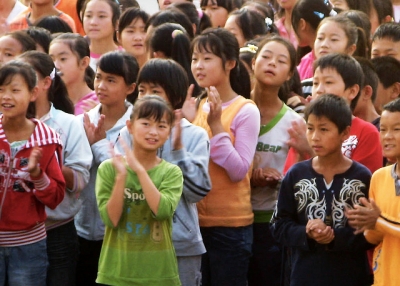Asia: New Top of the Class
Asia is top of the class and the United States is lagging behind, according a new world-wide survey of the skills of school students.
The results of Program for International Student Assessment (PISA) were released today by the Organization for Economic Co-operation and Development (OECD). The global assessment compared the reading, math, and science skills sets of 15-year-olds in 65 countries.
Shanghai was first, with Hong Kong SAR in second place and Finland third. Eight out of the 10 top spots were taken by Asia-Pacific countries or regions.
Meanwhile the United States—once a leader in education through much of the 20th century—came in a disappointing 26th when the results of the three categories were averaged out.
"The rise of education in Asia is no accident," said Asia Society President Vishakha Desai in New York (read her opinion piece on CNN's website). "It reflects deliberate policies and long-term investments that recognize the centrality of quality education to a nation's economic growth.
"Studies on PISA data show that higher test scores in math and science are associated with higher growth rates that, in turn, lead to higher incomes….
The time has come for America to learn from -- and with -- Asia and the world. Our ability to compete and lead in a global economy may well depend on it."
The U.S. ranked 14 in reading, virtually the same ranking as the 2003 test, 17th in science, which is an improvement from 21st in 2006; and 25th in mathematics, the same ranking as 2006. The good news is that U.S. students, especially those with the lowest performance, have significantly improved in science since 2006.
"The 2009 PISA data demonstrate the rise in the quality of education in Asia—among the top performers were Shanghai, Hong Kong, Singapore, Japan, and Korea," said Tony Jackson, Vice President, Education, at Asia Society
"Aligning education goals to economic development, Asian nations have scoured the world for models of effective education systems, and implemented them consistently through deliberate policies and long-term investments.
"Any definition of a world-class education must include knowledge of Asia and the language and cultural skills to deal with Asia. It’s a two-way street: America must now learn from—and with—Asia and the world."
Jackson said that despite the latest figures the United States remains a model of innovation with experts from around the world still studying advances in American education. However, these innovations are not being taken to scale so all students can benefit. While other countries continue to learn from the U.S., the U.S. can learn from other countries.
"It is critical for states to learn from each other and from the highest performing countries on the PISA exam to improve student learning. We are encouraged by the improvements in science made by our students and hope to see this trend continue," said Council of Chief State School Officers Executive Director, Gene Wilhoit.
"It is clear there is still a great deal of work to be done and states are committed to implementing reforms that prepare students for college, work, and life in the global community."
Bob Wise, President of the Alliance for Excellent Education and former governor of West Virginia, described the PISA results as "an important international lesson for U.S. policymakers" with economic ramifications.
"The fact that the lowest-income American students facing the longest learning odds are matching the average score of Finland, one of the world's best performers, shows the importance of pushing aggressive reform efforts everywhere,” he said. “But only having some students competing at this high level isn’t enough. For the United States to remain the world’s strongest economy, it needs the brainpower of all students.”
International comparisons are increasingly relevant and important to understand in today's global environment. No longer do the residents of American cities and states vie only with each other for jobs; their competitors are located in countries around the world.
To remain competitive, the U.S. must reform its education system to meet the challenges of the 21st century. Steps have already been taken in this direction through the Common Core State Standards.
"Governors recognize the irrefutable links between a quality education, a productive workforce, and a sound economy. Our competitiveness relies on an education system that can adequately prepare our youth for college and the workforce," said Dane Linn, Director, Education Division, National Governors Association Center for Best Practices.
"A foundation for helping all students become globally competitive are the Common Core State Standards, internationally benchmarked college- and career-ready standards that have now been adopted in states representing 87 percent of the nation's K-12 public school population. When our students have the skills and knowledge needed for today’s workforce, we will be positioned to compete successfully with any country in the world."
